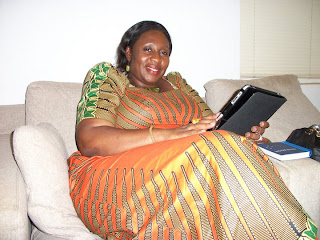Fw: [LGBTI_health_africa] Turning the Tide: Increasing Access to HIV Prevention and Care for Men Who Have Sex with Men in Ghana
A Q&A with Kim Green, Deputy Country Director for Ghana, FHI 360 —
According to the most recent Lancet issue, even though men who have sex with men (MSM) bear a disproportionate burden of HIV, they continue to be excluded from HIV services because of stigma, discrimination and criminalization. One of the primary challenges to reducing HIV prevalence is providing health care workers with training that breaks down stigma and humanizes men who have sex with men. FHI 360 is partnering with the U.S. Agency for International Development (USAID), the national government of Ghana, and local nongovernmental organizations (NGOs) and health workers to implement innovative programs aimed at turning that tide. In the following conversation, Kimberly Green, FHI 360's Deputy Country Director in Ghana, describes the work.
Question: How are you working to help men who have sex with men in Ghana?
Answer: In 2010, we partnered with USAID to initiate a program known as SHARPER, which stands for Strengthening HIV/AIDS Partnerships with Evidence-based Results. We are implementing this bold, four-year strategy in partnership with the national government and local NGOs. It aims to reach this group of men on a much larger scale despite the widespread hostility they regularly experience.
Question: Can you talk more about the specific goals and innovative strategies of the program?
Answer: We are focused on changing attitudes, promoting healthy behaviors, encouraging more men who have sex with men to access friendly HIV testing, counseling, care and treatment services. To achieve sustainable results, we are also building the technical and organizational development capacity of local partners across ten regions in Ghana.
Using a hybrid model, government nurses provide clinical services in drop-in centers that are run by local NGOs. These nurses receive training that reframes the stigma surrounding men who have sex with men. Our training program is unique because men who have sex with men are directly involved as co-trainers, which creates a transformative shift in the minds of health care workers and humanizes them.
Thus far, we have trained about 150 health care workers. The vast majority — about 90 percent — have reported a positive outlook in working with men who have sex with men and understand the importance of providing quality and respectful care to them.
Question: How are you leveraging mobile technology to help men who have sex with men access information and services?
Answer: We are using mHealth in three important and complementary ways. First, men who need counseling but prefer it to be anonymous because of stigma can use their cell phones to access a free service known as "Text Me, Call Me Help Line." This puts them in contact with trained nurses who are on call and are able to provide information on HIV and testing for HIV and sexually transmitted infections, emotional support, crisis counseling, and referrals to services. Because languages differ across the country, FHI 360 has trained nurses throughout Ghana.
We are also using mobile technology to reinforce healthy behaviors through weekly text messages about healthy practices or information about new services.
Finally, we've piloted a strategy to reach older, more discreet men who have sex with men. Using social media tools, we link them with health information and services. In the first three months, we reached about 3,000 men in this group, 45 percent of whom were over the age of 35. More than 90 percent of those reached through more traditional peer outreach efforts are young, so this is an indication we are reaching a new demographic group.
Question: Are there other community leaders or stakeholders that SHARPER is working with in order to address stigma against these men?
Answer: Yes, based on information from India, we've partnered with the Ghana AIDS Commission to develop a rapid response protection network. This network includes lawyers, police, district assembly members, brothel owners and health care workers that are well placed in each region and are sensitive to the needs of most-at-risk populations and people living with HIV/AIDS. They work with peer leaders who monitor and report human rights abuses and report back to them to support redress. More than one hundred cases have been reported and responded to in the past twelve months, and we expect the number of reports to increase as the network becomes more widely known.
---Semugoma Paul MD
__._,_.___
Recent Activity:
.
__,_._,___



Comments
Post a Comment